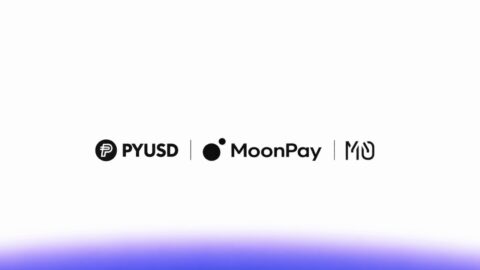The private equity (PE) market stands at a crossroads shaped by economic shifts, investor sentiment, and sector-specific dynamics. From global fundraising peaks to groundbreaking innovations, private equity continues to evolve. Navigating these trends and statistics can help stakeholders, investors, fund managers, and entrepreneurs alike understand the complex environment and identify opportunities. This article delves into critical market trends, with an in-depth look at fundraising, investment performance, and how economic and technological factors influence today’s private equity landscape.
Editor’s Choice: Key Market Milestones
- Global Private Equity Assets Under Management (AUM) soared to $10.8 trillion in 2025, marking a record high compared to previous years.
- Fundraising in 2024 hit a four‑year low of $746.5 billion.
- North America continues to lead in private equity capital, accounting for 59% of global capital raised, while Asia‑Pacific remains an emerging force.
- Average deal sizes spiked, with large private equity deals above $500 million surging, though specific averages were not disclosed.
- Technology remains a key target, but AI and infrastructure sectors are gaining momentum as growing focuses in 2025.
- Venture capital continues to face challenges with fundraising still subdued early in 2025, reflecting cautious investor sentiment.
- Exit activity rebounded significantly, with 215 exits worth $308 billion in the first half of 2025, the highest level in three years.
Investor Expectations for Deal Activity
- 71.4% of respondents expect private equity deal activity in their location to improve in 2025.
- 21.4% believe private equity activity will remain the same throughout the year.
- Only 7.1% anticipate a deterioration in private equity deal activity.
- 66.7% of investors predict venture capital deal activity will improve in 2025.
- 26.7% foresee no change in venture capital deal levels.
- A small share, just 6.7%, expects venture capital activity to deteriorate.

Fundraising Dynamics and Challenges
- Fundraising cycles have lengthened with the average time to close a fund reaching 18 months in 2025, up from 13 months in earlier years.
- ESG integration remains prominent in investment decisions, with most new funds incorporating sustainability criteria in 2025.
- The secondaries market expanded sharply with deal volume reaching $102 billion in H1 2025, a 51% increase year-over-year.
- Mega-funds raised $88 billion in H1 2025, continuing to dominate capital formation despite representing a smaller share of the total fund count.
- Smaller funds struggled as those under $500 million faced more selective investor allocations in early 2025.
- Geopolitical tensions continued to weigh on cross-border fundraising, particularly in Europe, where investor appetite remained subdued.
- Private equity real estate fundraising rebounded strongly with $57.1 billion raised in Q1 2025, signaling renewed interest in tangible assets.
Investment Performance and Returns
- Private equity returns held strong with long‑term outperformance of around +3.5% annually compared to public equities in 2025.
- Median Venture Capital IRR for vintage 2017 funds stood at 11.5% by Q1 2025, while top‑quartile funds achieved 28.3%.
- Top‑quartile private equity managers continue to stand out, delivering wide return dispersion well beyond public benchmarks.
- Infrastructure-focused strategies maintained solid performance as a stable, low‑volatility anchor, though specific IRR figures remain market‑specific.
- Real estate strategies persist in delivering mid‑teens annualized returns via industrial and residential exposure.
- Emerging market funds, especially in Southeast Asia and Latin America, are among the higher‑returning pools, though explicit numbers vary.
- The performance gap between top and bottom‑quartile returns remains substantial, underscoring the importance of manager selection.
Deal Flow and Transactional Trends
- In the U.S., private equity deal value comprises 50%, with more billion-dollar deals recorded.
- Large-scale deals gained momentum with 27% of H1 2025 deal value coming from transactions over $10 billion.
- Carve-out transactions remained active, with carve-outs comprising 10% of U.S. buyout deals in mid-2025.

- Cross-border activity was mixed, with U.S. outbound private equity deals up 24%, while inbound deals dropped 38%.
- Global deal value surged with M&A and private equity activity reaching $2.2 trillion in H1 2025, marking strong year-over-year growth.
- Private equity deal volume rose, with total value up 19% to $386 billion in H1 2025, driven by larger transactions.
- Infrastructure and tech megadeals, such as multibillion-dollar acquisitions, significantly boosted overall market momentum.
Sector Focus and Portfolio Diversification
- Technology remains private equity’s core focus, with 33% of buyout deal value in 2025 coming from tech companies.
- Healthcare continues to draw strong interest with increasing investment in tech‑driven health solutions.
- Financial services investment surged with deal value growing 92% year-over-year in 2025.
- Energy transition and infrastructure investments gained traction, with billions directed into power and clean energy assets.
- Consumer-oriented sectors maintained momentum as firms targeted resilient brands and digital commerce opportunities.
- Education technology remains a niche yet growing area with a rising focus on digital learning and remote education tools.
- Portfolio diversification remains strategic, with firms allocating capital across sectors to mitigate concentration risk.
Shifting Drivers of Private Equity Returns
- Top-line growth remains a consistent value driver, cited by 55% of respondents 5 years ago, 53% today, and a projected 62% in 5 years.
- Cost improvement and capital efficiency have surged in relevance, rising from just 9% five years ago to 41% now, with 35% expecting it to remain vital going forward.
- The role of M&A (mergers and acquisitions) as a return contributor has expanded, from 12% previously to 28% now, with 33% forecasting continued importance.
- Multiple expansion saw the biggest drop, falling from 69% five years ago to 24% now, and is expected to decline further to 23% in the next five years.
- Leverage stayed relatively flat, cited at 18% previously, 14% today, and projected at 15% in the future.

Influence of Macroeconomic Factors
- Interest rates peaked in 2023 but began easing in 2025, improving borrowing conditions and enabling renewal of add-on transactions.
- Inflation remains a key concern, with 86% of LPs citing it as their top investment challenge in 2025.
- Currency dynamics are shifting as the U.S. dollar weakens, prompting increased investment interest in emerging markets.
- Geopolitical tensions continue to reshape investment flows, fueling record inflows into emerging markets and heightened focus on regional stability.
- Supply chains are fragmenting and adapting, with firms prioritizing resilience and localization of key operations.
- Labor market shifts are fueling inflationary pressures, with some sectors expecting inflation around 4% in 2026 due to workforce constraints.
- Direct lending markets face moderate strain as 5% of middle-market borrowers struggle under debt stress, though overall default risk remains manageable.
Technological and Operational Innovations
- Digital transformation surged with 81% of firms citing it as essential in 2025.
- More than 40% of private equity firms have adopted formal AI strategies or are piloting generative AI in operations.
- Roughly 20% of portfolio companies have operationalized generative AI with measurable outcomes.
- Cybersecurity and AI topped tech investment priorities, with both widely adopted across firms for protection and efficiency.
- AI investments dominated in early 2025, with 51% of VC deal value attributed to AI-driven ventures.
- Around 61% of firms expect automation and AI to play a major role in fund operations like accounting and deal management.
- Efficiency gains are notable with adopters of AI reporting faster insights, goal outperformance, and reduced decision time.
Private Debt Entry Routes for Institutional Investors
- Co-investments dominate the landscape, making up 41.8% of all private debt entry opportunities.
- Fund of Funds remains a significant channel, accounting for 22% of institutional entry.
- Single investor-managed accounts with a multi-manager approach represent 9.9% of the market.
- Single investor-managed account GP structures account for 8.8% of investor entry strategies.
- Secondaries also hold 8.8%, providing liquidity-focused access to private debt.
- Direct investments comprise 4.4%, indicating more limited direct allocation by institutions.
- Single funds represent the smallest segment, with 4.4% of institutional participation.

Regional Variations in Private Equity Activity
- North America continues to dominate private equity globally with over 50% of AUM, though its growth has moderated to around 4–5% in early 2025.
- Europe led global private equity exit activity in H1 2025 with 515 exits, surpassing North America and reflecting stronger investor momentum.
- Asia-Pacific maintains rapid momentum with deal activity shifting from China to India and Southeast Asia, despite some moderation in overall growth.
- Latin America remains a fast-growing region with fund sizes and deal volumes now comparable to those in parts of Asia.
- The Middle East has gained prominence, with nearly 80% of regional investors planning to increase private equity allocations in 2025.
- Africa is emerging steadily as private equity activity grows across agriculture, telecom, and financial services, supported by regional fund expansion.
Regulatory and Compliance Landscape
- ESG compliance costs have risen significantly, with nearly 90% of PE firms reporting materially higher costs over recent years.
- Transparency demands have intensified in North America and Europe, with over 30% more disclosures required across performance and risk metrics.
- AML regulations continue tightening, affecting around 14% of cross-border deals, especially in high-risk jurisdictions.
- Changes in U.S. tax policy on capital gains have prompted about 25% of firms to consider alterations to deal structures.
- Data privacy compliance costs remain high, with firms incurring approximately 10% higher operational expenses to comply with GDPR and similar regulations.
- Antitrust and FDI scrutiny has expanded, with 66% of firms expecting heightened regulatory reviews, particularly in tech and healthcare.
- Increased scrutiny of offshore structures has led to a 7% decline in deals routed through traditional tax havens, as firms opt for more transparent models.
Private Equity Trends to Watch
- Impact investing continues to surge with over $1.5 trillion in impact assets under management globally as of early 2025.
- Continuation funds gained remarkable traction with $41 billion raised in H1 2025, underscoring growing reliance on liquidity extensions.
- LP direct investments are increasing, as around 60% of PE firms now leverage generative AI tools to enhance portfolio operations and value creation.
- Healthcare and biotech remain hot sectors with forecasted capital inflows expected to be substantial through the next years amid rising innovation demand.
- Digital and tech-driven investment management solutions are expanding rapidly, with 82% of PE/VC firms adopting AI by late 2024.
- Resiliency-focused investments continue to rise as firms pivot toward infrastructure and essential services to cushion macro volatility.
- Focus on cybersecurity is intensifying with growing investments from firms both to protect portfolio companies and as strategic asset plays.
Recent Developments
- Blackstone launched a $25 billion infrastructure initiative focused on digital and energy assets in Pennsylvania, with plans to catalyze an additional $60 billion in wider investments.
- Carlyle Group completed a $3.8 billion acquisition of Vantive, Baxter’s kidney-care spinoff, marking a major healthcare deal heading into 2025.
- Private equity giants, including Blackstone and Carlyle, collectively earned $4.2 billion in management fees in Q2 2025, while Blackstone distributed nearly $100 billion to investors, a 40% year-over-year increase.
- New continued fund activity and buyout strategies are being employed to manage deal flows creatively as firms seek to balance valuation pressures and capital returns.
Conclusion
The private equity market today presents a nuanced landscape where global shifts, regional dynamics, and regulatory pressures shape investment strategies. With an ever-growing focus on sustainability, technological innovation, and sector diversification, private equity firms continue to adapt to an evolving financial ecosystem. While challenges like high interest rates and compliance costs pose hurdles, the potential for growth in emerging markets, along with innovations in AI and digital transformations, offers promising paths forward. The private equity industry is poised for a future where resilience and adaptability will define success, ensuring that firms remain aligned with market demands and investor priorities.



































































